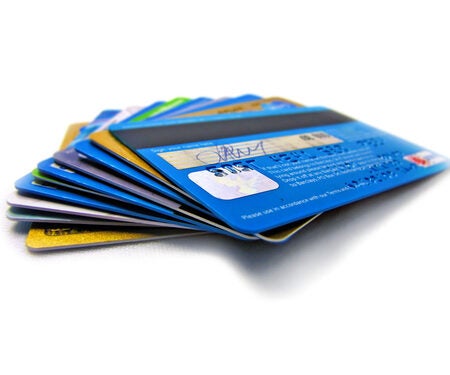
Disclosure regarding our editorial content standards.
A fraud alert on your credit report signals to creditors that they should go through extra security measures before issuing new credit, loans or accounts to you.
Most commonly, people who’ve experienced identity fraud opt for fraud alerts to ensure their fraudsters can’t do further damage. However, fraud alerts are also a great preventive step for anyone seriously concerned about identity fraud.
Keep reading to find out what the different types of fraud alerts are, what credit report fraud alerts can do for you and how to register for an alert.
Types of fraud alerts
There are a few different types of fraud alerts, and consumers should choose the type that best suits their needs and their situation.
Initial fraud alerts
If a person believes they’ve just become, or are about to become, a victim of fraud or identity theft, they can place an initial fraud alert on their credit report. You can contact one of the three nationwide credit bureaus—Experian, Equifax or TransUnion—to request an initial fraud alert. The credit bureau you contact must alert the other two credit bureaus so they can also place an alert.
An initial fraud alert will stay on your account for one year. After that, the alert will expire and be automatically removed. If you wish to have the initial fraud alert continue, simply place another alert after the one-year expiration.
By placing an initial fraud alert on your account, you’re entitled to one free copy of your report from each of the major credit bureaus. This free report is in addition to the standard free annual report you’re allowed.
Once you place an initial fraud alert on your credit report, all creditors must take reasonable steps to verify your applications before approval. An example of this includes calling the phone number provided on the application and asking security questions to verify the borrower’s identity.
These measures help prevent false accounts from being opened under your name.
Extended fraud alerts
An extended fraud alert is similar to an initial fraud alert, but it’s reserved for specific situations. You can only place an extended fraud alert on your credit report after your identity has been stolen.
Individuals will need to verify with the credit bureaus that their identity has been stolen by reporting it to the Federal Trade Commission and the police.
The extended fraud alert can stay on your credit report for seven years. This type of alert requires that creditors always call you to verify new applications using the specific contact method you’ve provided.
During these seven years, your profile won’t be added to marketing efforts for preapproved credit offers.
When you add an extended fraud alert, you’re eligible for two free credit reports from each nationwide credit bureau for the first 12 months after filing.
Active-duty fraud alerts
Active-duty fraud alerts help members of the military stay protected while they’re on active duty. These fraud alerts last 12 months and are available to any military member—Air Force, Army, Coast Guard, Marines or Navy.
After 12 months, the individual will have to request a renewal of the alert on their account.
As with other fraud alerts, the active-duty fraud alert means creditors have to take extra steps to verify identification when receiving a new credit request, new account request or credit limit request.
Individuals with an active-duty alert will have their names removed from marketing efforts for preapproved credit offers for 24 months.
When someone is on active duty, they can’t be expected to have the time or resources to monitor their credit frequently. An active-duty fraud alert helps to reduce their risk of identity fraud while they’re serving the country.
Fraud alerts vs. security freezes
A federal law went into effect in September 2018 that gives consumers the option to freeze and unfreeze their credit with the credit bureaus. Security freezes are free and can be requested at any time.
However, note that you’ll have to contact each credit bureau individually and request a security freeze with each organization.
A security freeze stops any new creditors from accessing your credit report or opening a new account until you unfreeze the account. The only exceptions are:
- Requests to view your credit report for employment, insurance or tenant screening
- Creditors you have an open account with
- Some government entities, such as child support agencies
- Companies you’ve hired to monitor your credit report
A fraud alert reduces your risk of identity theft or fraud, but it’s not a guarantee. Creditors only have to make a “reasonable” effort to verify your identity before approving a credit application.
So, if the fraudster has enough information to surpass these identity checks, fraud can still occur with a fraud alert on your account.
In comparison, a security freeze makes fraud or identity theft nearly impossible. The majority of creditors won’t open a new credit account without getting access to a report. The only exception is that a security freeze can’t stop fraudsters from taking over an existing open account.
When it comes to choosing between a fraud alert and a security freeze, you should ask yourself if you’ll be needing new credit soon. With a fraud alert, you’ll be able to get new credit when you need it—you’ll just have to go through some extra verification steps.
On the other hand, a security freeze means you’ll have to make do with your open accounts until you’re ready to lift the freeze.
How to put a fraud alert on your credit report
Regardless of which route you take, the critical step is to act quickly. As soon as you notice a sign of identity theft or fraud, contact the credit bureaus for a freeze or fraud alert.
Some common signs of identity theft include unexplained bills or statements addressed to you, sudden drastic drops in your credit score or calls from collections for debts you don’t recognize.
1. Contact one of the credit bureaus
The first step is to contact any of the three nationwide credit bureaus. Under the Fair Credit Reporting Act (FCRA), if you contact one agency, they’re obligated to inform the other two of your fraud alert request.
You can request a fraud alert online or by calling in. Make sure to specify the type of fraud alert you want.
- Equifax: Online here or call 1-800-465-7166
- Experian: Online here or call 1-888-397-3742
- TransUnion: Online here or call 1-800-663-9980
2. Review your credit report for free
Filing a fraud alert gives you access to an additional free credit report from each bureau. It’s important that you take advantage of this and request a copy of your report.
You’re filing because you’re a victim of identity theft, or you suspect you are. Your credit report will list all your open accounts so you can identify any that don’t belong to you.
3. Remove or extend the fraud alert as necessary
At the expiration date, your fraud alert will be automatically removed from your credit report. If you want to remove it earlier, you can contact the credit bureau directly. You’ll have to contact each credit bureau independently for this request.
Does a fraud alert hurt your credit?
A fraud alert doesn’t impact your credit score. The only potential downside is that it will take longer to get credit applications approved.
Other ways to care for your credit
Credit locks
A credit lock is very similar to a security freeze. The credit lock helps to protect your information so fraudsters can’t open new accounts under your name. Unlike security freezes, which are free, some credit bureaus charge a monthly fee for a credit lock.
The main benefit of a credit lock is that it’s very easy to turn on and off. In comparison, a undoing a security freeze usually takes some time.
Security freezes are offered thanks to a federal law from 2018. This means that a consumer has more protection and guarantees under a security freeze. The government doesn’t regulate credit locks, so if the bureau makes a mistake after you requested a credit lock, you won’t have the same protection.
Credit monitoring
One of the best steps you can take for identity theft protection is working with a credit monitoring service.
You probably don’t have the time to monitor your credit as often as you should, but you can hire credit monitoring services that will do this for you and alert you any time there’s suspicious activity under your name.
Credit repair
If you’re a victim of identity theft, your credit score has likely suffered. Even though you’re the victim, it can be an uphill battle trying to work with the bureaus to improve your credit.
Credit repair services will do all the work for you and file disputes for every negative item on your report that’s inaccurate or unsubstantiated. You can reach out to the advisors at CreditRepair.com to learn more.
Note: The information provided on CreditRepair.com does not, and is not intended to, act as legal, financial or credit advice; instead, it is for general informational purposes only.
Questions about credit repair?
Chat with an expert: 1-800-255-0263






